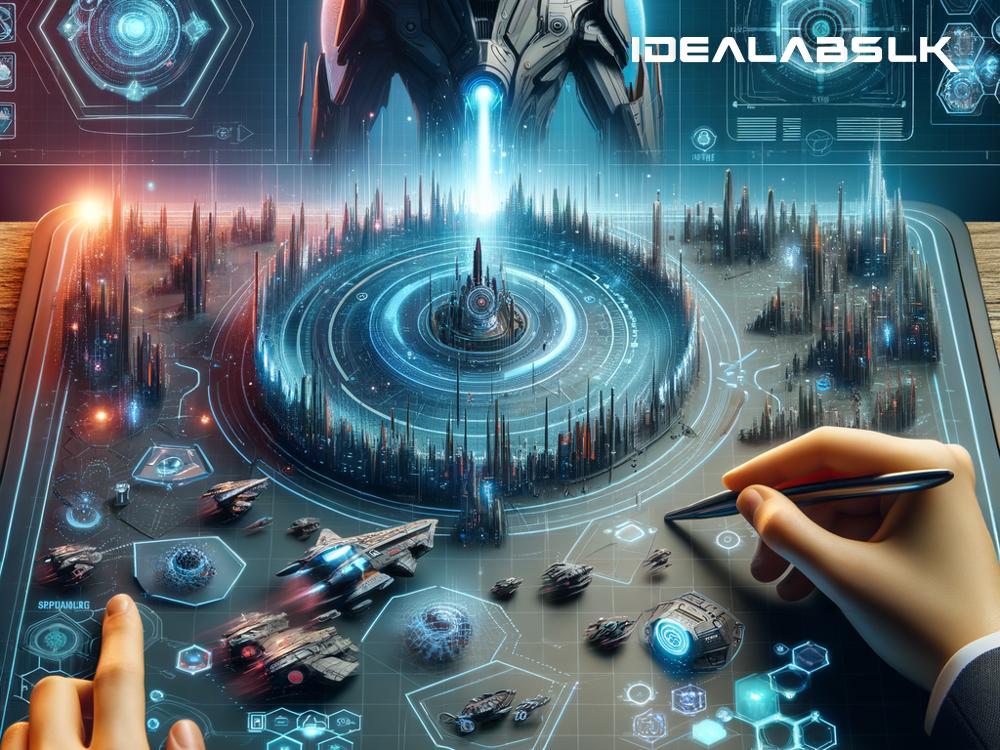How AI Will Revolutionize Strategy Games with Real-Time Decision-Making by 2025
In the rapidly evolving world of video games, strategy titles stand out for their complexity and the deep thinking they require. From ancient battle simulations to futuristic space conquests, these games have always been about planning, patience, and the long-term view. But what if we could elevate the experience even further? The answer lies in the integration of Artificial Intelligence (AI). By 2025, AI is set to transform how we play strategy games through the power of real-time decision-making.
A New Era of Gaming Intelligence
Imagine playing a strategy game where the environment, the enemies, and your own units adapt to your playstyle in real-time. No longer constrained by pre-set difficulty levels or predictable patterns, every decision you make would have immediate, cascading consequences, redefining the concept of "challenge" in gaming. This is the future AI promises — a dynamic, ever-changing battleground where strategy is not just about the decisions you make but how quickly and effectively you make them.
Real-Time Decision-Making: The AI Advantage
At the heart of this transformation is AI's ability to process data and make decisions much faster than a human ever could. This speed does not mean the game plays itself; rather, it allows for a more immersive and engaging experience. AI can create scenarios that react to the player's actions on the fly, crafting experiences that are unique, unpredictable, and tailor-made to challenge the player's strategic abilities.
For example, in a strategy game set in the Middle Ages, AI could dynamically adjust the opponent's tactics based on whether you focus on economy, military, or diplomacy. An aggressive, warlike approach from the player might lead the AI to fortify its defenses and seek alliances with your enemies, while a more diplomatic playstyle could see the AI attempt to undermine your relations with other factions or sabotage your resources.
Beyond the Game: Learning and Adaptation
One of the most exciting prospects of AI in strategy games is its potential for learning and adaptation. AI-driven games can observe and analyze the player's behavior, learning their strategies and preferences over time. This means that the more you play, the smarter the AI becomes, continuously providing you with challenges that push you to evolve your gameplay.
This capability significantly enhances replay value, ensuring that no two playthroughs are the same. Players will need to constantly innovate and experiment with different strategies, keeping the game fresh and engaging for longer periods.
Collaborative AI: A New Kind of Teammate
AI in 2025 is not just about making games tougher; it’s also about making the way we play them more versatile. AI-driven non-player characters (NPCs) can act as teammates, offering a level of cooperation and coordination previously impossible. These AI companions can make their own decisions, assist in formulating strategies, and execute complex maneuvers in response to the player's commands or the situation at hand.
Imagine a strategy game where you lead a squad of soldiers, each controlled by AI with its unique personality and skill set. These characters can suggest tactics, take initiative, and adapt to your leadership style, making for a deeply immersive and collaborative experience.
Preparing for the Arrival of AI in Strategy Gaming
As we approach 2025, both gamers and developers need to prepare for the significant shifts AI will bring to strategy games. Players should be ready to embrace the increased complexity and unpredictability that AI opponents and environments will introduce. Meanwhile, developers will need to focus on creating sophisticated AI systems that are capable of learning, adapting, and genuinely challenging human players, without becoming unbeatable.
The integration of AI into strategy games promises to enhance the realism, depth, and enjoyment of these titles by offering dynamic, intelligent responses to players' actions in real-time. The emergence of AI-driven real-time decision-making will not only redefine what it means to play strategy games but also push the boundaries of what video games are capable of achieving. By 2025, prepare to step into a world where strategy gaming is not just about the decisions you make, but how you adapt to the evolving challenges an AI-driven world throws at you.

